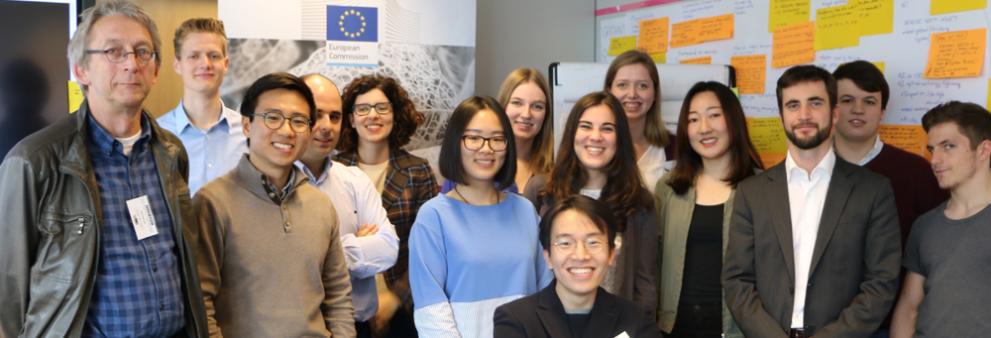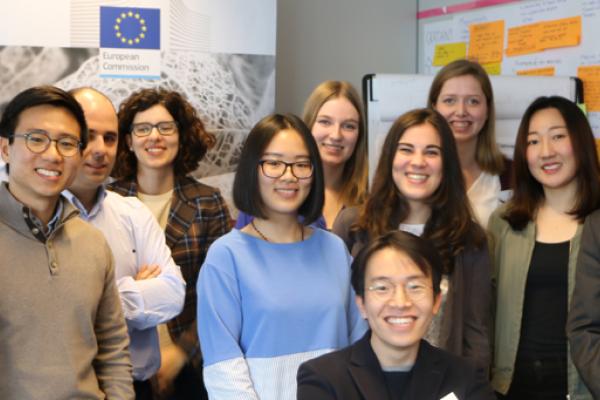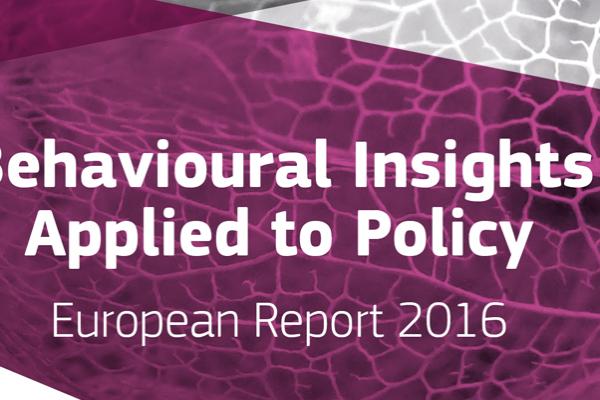
On April 6 2017 the EU Policy Lab welcomed a group of 12 students from the Bachelor Honours Research Class of the Erasmus School of Economics, Erasmus University Rotterdam (the Netherlands).
This selective program exposes top students across all bachelor programs in the Erasmus School of Economics to research and research-oriented careers. A key goal of this program is to showcase how state-of-the-art research in economics is done both in academia and in non-academic institutions. The students spent half-a-day at the EU Policy Lab to learn how evidence from research in behavioural and experimental economics is being applied to solve concrete EU policy challenges.
Upon their arrival in Brussels, we had an informal lunch with them to get to know each other. After that, the behavioural insights team discussed with the students how the European Commission applies insights from behavioural sciences to inform legislative and non-legislative activities across several policy areas such consumer protection, competition policy, health and nutrition (you can find more information on the Joint Research Centre website). During this session, the students also had the chance to learn about the European Commission’s Blue Book Traineeship programme. Afterwards, the Bachelor Honours Research Class made a short presentation about their activities and diverse curricula – econometric, operations research, law, and business economics.
The most exciting part of the day was a hands-on session on the application of behavioural insights to concrete challenges in public policy. Organized in three teams, students had the opportunity to design their own policy interventions and present them to the group. In a very short time, students were able to put forward actionable ideas grounded in sound scientific evidence to tackle important challenges across several policy areas. The proposals included behavioural strategies to improve eating habits, to encourage voting behaviour, to increase pedestrian safety in cross-walks, and to promote treatment adherence, among others. Parts of this session were filmed, you can have a look at the video below:
It was a pleasure to meet such a dynamic and committed group of students. We congratulate them on their work and on the high quality of the ideas presented!
Details
- Publication date
- 21 April 2017
- Author
- Joint Research Centre
- EU Policy Lab tags


